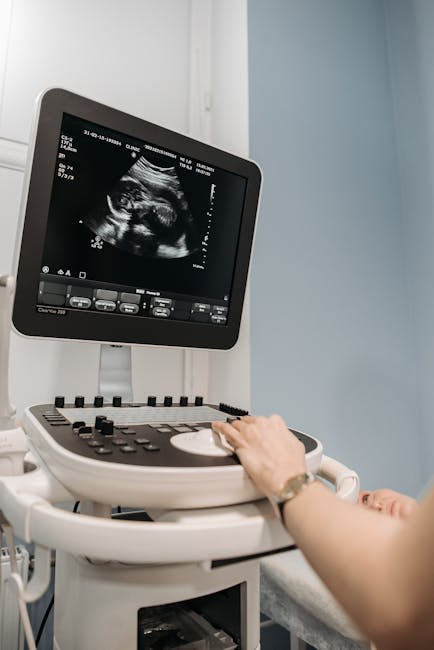Diagnosing Mesothelioma Before Death: Is It Possible?
Mesothelioma is a rare and aggressive cancer that primarily affects the lining of the lungs, abdomen, or heart. It is closely linked to asbestos exposure and often has a long latency period, which can make early diagnosis challenging. However, advancements in medical technology and a better understanding of the disease have made it possible to diagnose mesothelioma before it reaches a terminal stage. In this comprehensive guide, we’ll explore the various methods of diagnosing mesothelioma, the importance of early detection, and actionable tips for those at risk.
Understanding Mesothelioma
Before delving into the diagnostic methods, it’s crucial to understand what mesothelioma is and how it develops. Mesothelioma is caused by inhaling or ingesting asbestos fibers, which can become lodged in the mesothelium—the thin layer of tissue that covers most of the internal organs. Over time, these fibers cause inflammation and genetic changes that can lead to cancer.
Types of Mesothelioma
There are four main types of mesothelioma:
- Pleural Mesothelioma: Affects the lining of the lungs and is the most common form, accounting for about 75% of cases.
- Peritoneal Mesothelioma: Affects the lining of the abdomen and makes up about 20% of cases.
- Pericardial Mesothelioma: Affects the lining of the heart and is extremely rare.
- Testicular Mesothelioma: Affects the lining of the testes and is the rarest form.
Symptoms of Mesothelioma
Early symptoms of mesothelioma are often vague and can be mistaken for more common illnesses, making early diagnosis difficult. However, recognizing these symptoms can be the first step toward a timely diagnosis.
Pleural Mesothelioma Symptoms
Symptoms include:
- Persistent cough
- Chest pain
- Shortness of breath
- Unexplained weight loss
- Fatigue
Peritoneal Mesothelioma Symptoms
Symptoms include:
- Abdominal pain
- Swelling in the abdomen
- Nausea
- Loss of appetite
- Unexplained weight loss
Pericardial and Testicular Mesothelioma Symptoms
These forms are rare, but symptoms can include chest pain and difficulty breathing for pericardial mesothelioma, and swelling or lumps in the testicular area for testicular mesothelioma.
Diagnostic Techniques for Mesothelioma
Diagnosing mesothelioma involves a combination of imaging tests, blood tests, and biopsies. Here are some of the most common diagnostic methods:
Imaging Tests
Imaging tests are often the first step in diagnosing mesothelioma. They can reveal abnormalities such as fluid buildup or tumors. Common imaging tests include:
- X-Rays: Can show fluid buildup or tumors in the chest or abdomen.
- CT Scans: Provide detailed cross-sectional images of the body and can help determine the extent of the disease.
- MRI Scans: Offer more detailed images of soft tissues and can be useful in assessing the spread of the disease.
- PET Scans: Use radioactive tracers to detect cancerous cells and can help in staging the disease.
Blood Tests
Blood tests can help detect biomarkers associated with mesothelioma. Some of the biomarkers include:
- Mesothelin: Elevated levels can indicate mesothelioma.
- Fibulin-3: Another biomarker that can help in diagnosing and monitoring the disease.
Biopsies
A biopsy involves taking a tissue sample for examination under a microscope. This is the most definitive way to diagnose mesothelioma. Common biopsy methods include:
- Needle Biopsy: A needle is used to extract a small tissue sample.
- Thoracoscopy: A camera is inserted through a small incision in the chest to take tissue samples.
- Laparoscopy: A camera is inserted through a small incision in the abdomen to take tissue samples.
The Importance of Early Detection
Early detection of mesothelioma can significantly improve treatment outcomes and quality of life. Here are some reasons why early detection is crucial:
Improved Treatment Options
When mesothelioma is diagnosed early, patients have more treatment options available, including surgery, chemotherapy, and radiation therapy. Early-stage mesothelioma is more likely to respond to treatment, increasing the chances of remission.
Better Prognosis
Early detection often leads to a better prognosis. According to the American Cancer Society, the 5-year survival rate for localized mesothelioma is approximately 20%, compared to just 8% for cases where the cancer has spread to distant organs.
Enhanced Quality of Life
Early diagnosis allows for timely intervention, which can alleviate symptoms and improve the patient’s quality of life. Palliative treatments can also be more effective when applied early in the disease’s progression.
Actionable Tips for Those at Risk
If you have been exposed to asbestos or are at risk of developing mesothelioma, here are some actionable tips to help you stay proactive about your health:
Regular Medical Check-Ups
Schedule regular check-ups with your healthcare provider, especially if you have a history of asbestos exposure. Early detection is key to managing mesothelioma effectively.
Be Aware of Symptoms
Familiarize yourself with the symptoms of mesothelioma and consult a doctor if you experience any of them. Early intervention can make a significant difference in treatment outcomes.
Discuss Screening Options
Talk to your doctor about screening options, especially if you are at high risk. Some screening tests, such as imaging scans and blood tests, can help detect mesothelioma at an early stage.
Maintain a Healthy Lifestyle
Adopting a healthy lifestyle can help boost your immune system and overall well-being. Eat a balanced diet, exercise regularly, and avoid smoking to reduce your risk of developing mesothelioma.
Conclusion
Diagnosing mesothelioma before it becomes terminal is challenging but possible with the right approach. Early detection through regular check-ups, awareness of symptoms, and advanced diagnostic techniques can significantly improve treatment outcomes and quality of life. If you are at risk, take proactive steps to monitor your health and consult your healthcare provider for personalized advice.
By staying informed and vigilant, you can take control of your health and increase your chances of detecting mesothelioma at an early, more manageable stage.


